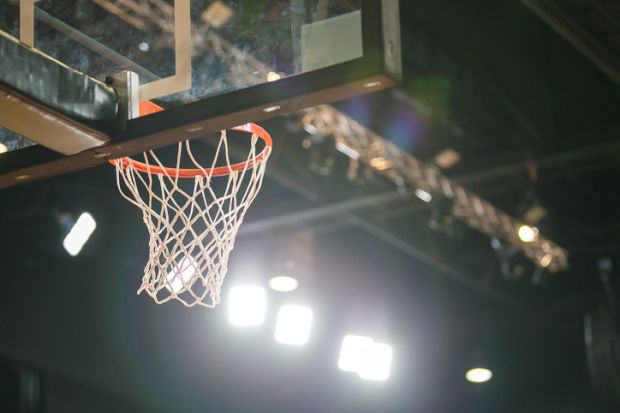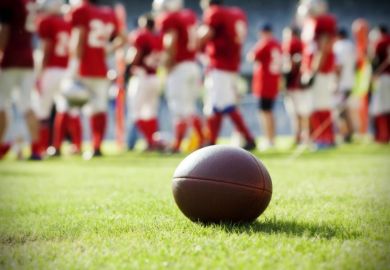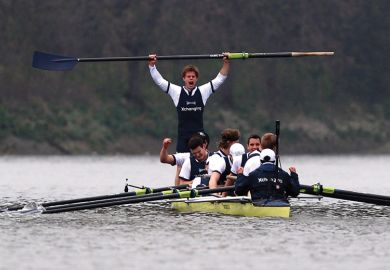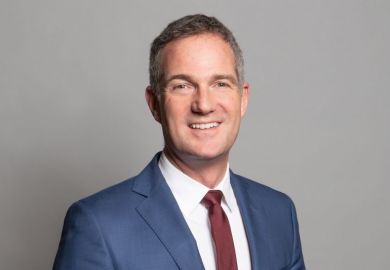Ten people, including four coaches who work for some of US college basketball’s most prominent programmes, face federal fraud and corruption charges for an alleged scheme to direct athletes to certain institutions and agents in exchange for thousands of dollars’ worth of bribes.
College sports experts and ethicists say that the Federal Bureau of Investigation inquiry marks a historic moment in the landscape of men’s basketball and is the latest in a series of outside pressures – a push for athlete unionisation and pay, antitrust lawsuits – that could threaten the reputation of US university sport and further undermine support for its amateur status.
The National Collegiate Athletic Association, which according to prosecutors was unaware of the inquiry, lacks the manpower and the will to radically alter the current system, which is lucrative for colleges, television networks and many other parties, experts say.
“I think this truly shows real inability of the NCAA to police college athletics,” said Dave Ridpath, president of ethics watchdog the Drake Group.
On 26 September the US attorney’s office in New York announced the charges against four assistant or associate coaches: Lamont Evans of Oklahoma State University, Emanuel Richardson of the University of Arizona, Tony Bland of the University of Southern California and, most notably, Chuck Person of Auburn University – a former National Basketball Association star and coach.
All four coaches were either suspended or placed on leave by their universities.
Three representatives of Adidas, including the high-ranking director of global sports marketing, were also named in the complaint, as were three financial advisers and athletics managers. Adidas was not identified by name in court documents.
In a press briefing Tuesday, Joon H. Kim, acting US attorney for the Southern District of New York, detailed two complex arrangements. One involved Adidas executive James Gatto and others allegedly helping to facilitate six-figure payments to the families of high school basketball recruits in exchange for the recruits’ commitment to play at college basketball programmes sponsored by Adidas, and for the athletes agreeing to sign endorsement deals with Adidas once they turned professional.
One athlete was allegedly paid $150,000 (£113,000), another $100,000.
This occurred with at least three recruits, who in turn pledged to two colleges not named in court papers, but that are widely reported to be the University of Louisville (already on NCAA probation) and the University of Miami. Enrolment numbers and other descriptors listed in court filings match those institutions, and both have deals with Adidas.
In return for cash, the coaches also allegedly persuaded athletes to hire certain financial managers and advisers, such as Christian Dawkins, a former NBA agent cited in the complaint who was recently fired from his agency after he charged $42,000 in Uber rides to an NBA player’s credit card.
During the news conference, Mr Kim quoted coaches bragging about their influence over players.
“The picture painted by the charges brought today is not a pretty one,” Mr Kim said. “Coaches at some of the nation's top programmes soliciting and accepting cash bribes; managers and financial advisers circling blue-chip prospects like coyotes; and employees of one of the world’s largest sportswear companies secretly funnelling cash to the families of high school recruits.”
The revelations were the latest to expose the influence of apparel companies in the college sports landscape. Several international shoe and sportswear companies – Nike and Under Armour, in addition to Adidas – pay tens of millions of dollars a year to equip (and, from a marketing standpoint, align themselves with) major university programmes. For nearly 30 years, books such as Raw Recruits and Sole Influence have documented the leverage that companies have on recruitment and players’ choices as early as middle school.
Mr Ridpath, of the Drake Group, called the scandal a “wake-up call” for the public and said that these types of issues pervade men’s basketball – they are “systemic and endemic”, he said.
In a statement, NCAA president Mark Emmert said: “The nature of the charges brought by the federal government are deeply disturbing. We have no tolerance whatsoever for this alleged behaviour.
“Coaches hold a unique position of trust with student athletes and their families and these bribery allegations, if true, suggest an extraordinary and despicable breach of that trust. We learned of these charges this morning and of course will support the ongoing criminal federal investigation.”
American Council on Education president Ted Mitchell said in a statement that the allegations, if proven, would be among the most egregious to affect colleges and universities in recent memory.
“If true, I am confident the institutions and the NCAA will promptly take the strongest possible action,” Professor Mitchell said.
Preserving the amateurism of college sports and an income for athletes have both been debated. The NCAA charter stipulates that athletics must be subordinate to the educational mission of an institution, but with its drain on many colleges’ finances and sports dominating campus culture, some have questioned whether college athletics should shift to a semi-professional model.
Similarly, players can rake in millions of dollars for an institution and serve as high-profile figures in the sports world, but they can never be considered employees, with the protections that would come with that designation.
Andrew Zimbalist, chairman of the department of economics and a professor of economics at Smith College, said that while this will make the NCAA squirm and perhaps increase the momentum for changes, the association has survived more damaging situations.
Professor Zimbalist said that he would push for athletic directors and coaches to be limited in their salaries, because those at the top are sometimes paid as much as those in the professional leagues. He called it an “absurd contradiction” that college athletics is still considered amateur but the coaches are paid so highly.
Many basketball coaches nationwide will likely sweat over the investigation, said Jon Solomon, editorial director of the Aspen Institute’s Sports and Society Program, who also favours pay for athletes.
He said that no one was surprised by this, and noted that the FBI had set up a tip line, likely leading to the exposure of more corruption. Mr Solomon said that he would be interested to see which coaches and managers would inform on the others to avoid jail time and whether institutions would cut ties with those who were implicated in this type of crime.
“This is just the start,” Mr Solomon said.
This is an edited version of a story that first appeared on Inside Higher Ed.
Register to continue
Why register?
- Registration is free and only takes a moment
- Once registered, you can read 3 articles a month
- Sign up for our newsletter
Subscribe
Or subscribe for unlimited access to:
- Unlimited access to news, views, insights & reviews
- Digital editions
- Digital access to THE’s university and college rankings analysis
Already registered or a current subscriber?






